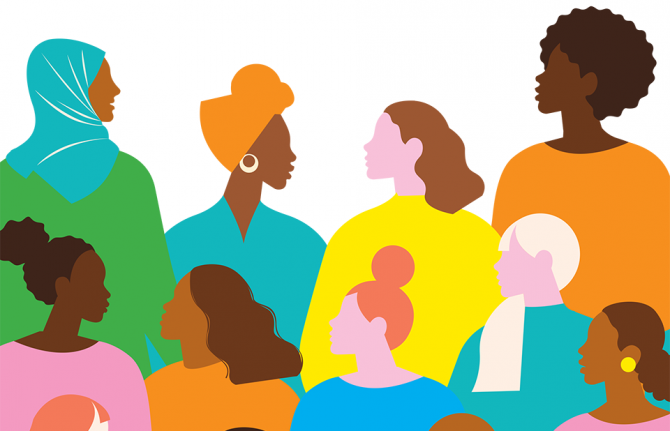

Feature Story
UNAIDS highlights six critical actions to put gender equality at the centre of COVID-19 responses
15 June 2020
15 June 2020 15 June 2020The AIDS response has taught the world the importance of protecting human rights and promoting gender equality when fighting a disease. COVID-19 has amplified that lesson.
Since the start of the COVID-19 pandemic, UNAIDS has repeated the call that governments must protect human rights and prevent and address gender-based violence—an issue that is even more vital now that lockdowns are putting women and girls at an even higher risk of intimate partner and sexual violence. Equally, UNAIDS has made it clear that sexual and reproductive health services should be recognized as the essential services they are.
To drive those messages to decision-making tables and to the front lines of the response, a new UNAIDS report shows how governments can confront the gendered and discriminatory impacts of COVID-19. Presenting six areas as imperatives to address the needs, and protect the rights, of women and girls during the pandemic, the report highlights the needs of women and girls in all their diversity, particularly the most marginalized, and the importance of access to essential health services. The neglected epidemic of gender-based violence, the misuse of criminal and punitive laws, the importance of education, health and well-being and the value of women’s work and making unpaid care work everybody’s work are also showcased.
“Just as HIV has held up a mirror to inequalities and injustices, the COVID-19 pandemic has put a spotlight on the discrimination that women and girls battle against every day of their lives,” said Winnie Byanyima, Executive Director of UNAIDS. “Many of the drivers of inequality in the HIV epidemic are the same as those driving inequality and injustice in the COVID-19 pandemic—both epidemics can only be successfully fought by putting gender equality at the centre of the response.”
The report underscores that sexual and reproductive health and rights are often the first to be sacrificed during epidemics and that the gains of the past decade must be protected. The report also makes it clear that scarce resources must be focused on the most marginalized women and girls, including sex workers, gender diverse people, women in prison and migrants and others without proof of employment or residence.
A selection of practical steps that UNAIDS has been taking with partners in countries to maintain essential health-care services, mobilize emergency legal protection and support populations facing human rights violations during the COVID-19 outbreak are presented.
For example, in Nigeria and Côte d’Ivoire UNAIDS is partnering with the International Community of Women Living with HIV to facilitate women living with HIV to work as community pharmacists, who help with the collection and home delivery of antiretroviral therapy and other medicines for people who were unable to access their treatment owing to COVID-19 restrictions.
In Latin America, the United Nations Population Fund and UNAIDS are offering contraceptives and HIV testing, as well as hygiene kits and information on gender-based violence and HIV, to women who are in compulsory quarantine after fleeing the Bolivarian Republic of Venezuela because of COVID-19.
In Morocco, UNAIDS, in partnership with the Ministry of Health, the Global Fund to Fight AIDS, Tuberculosis and Malaria and civil society, is mobilizing self-help groups, medical and psychosocial support and family mediation services for populations at higher risk of HIV. Collaborations between the government and civil society have helped to ensure continued access to antiretroviral therapy, opioid substitution therapy and food aid during the pandemic.
Above all, the report has the message that health, safety, dignity and rights, especially for women and girls, in all their diversity, must not be compromised and women should lead the call for change.
“Get out there and fight, use your voice to demand and take action for your communities,” added Ms Byanyima.



